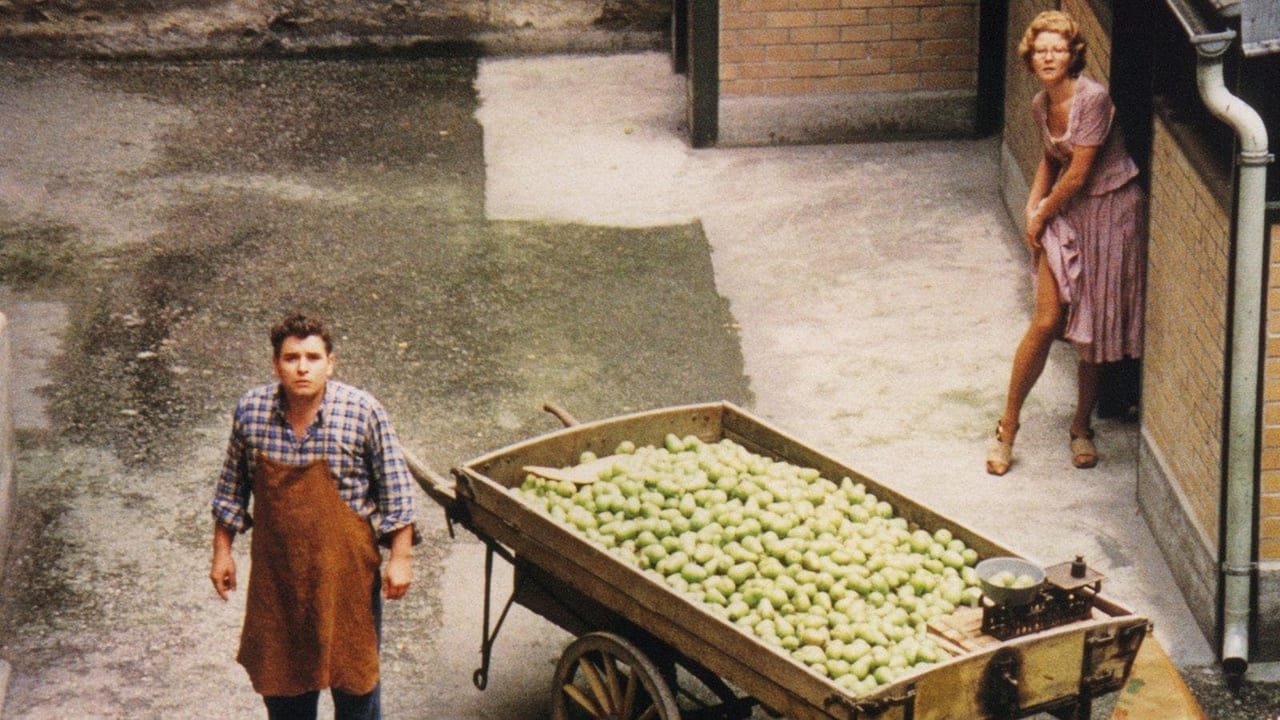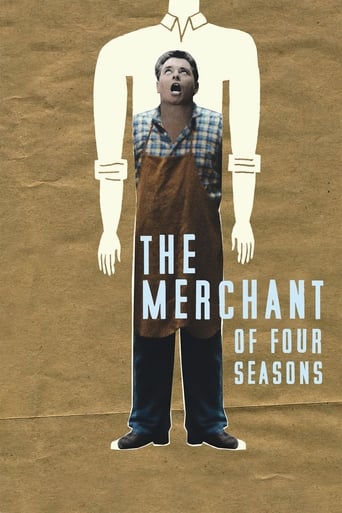

This 1971 film would be the turning point in Rainer Werner Fassbinder's career. A scathing portrait of a man crushed by societal pressures. The film purposely mixes 1970's with 1950's Germany in which the story takes place. Fassbinder also applies his staged and often stilted style which actually works in the film's favor. His two leading actors are outstanding, Hans Hirschmüller and Irm Hermann manage to push beyond the artifice to something very real. It has been said that much of this film's success is owed to Fassbinder's inspiration ultimate meeting with Douglas Sirk. While this may be the case, this film is astoundingly unique. The director would go on to make even more potent films, but this was the first fully-formed vision. A film not to be missed.
... View MoreI have always found Fassbinder fascinating, but this film drags.First, Hans Hirschmuller is a strikingly unattractive protagonist. Sometimes that kind of casting can be interesting, but in this case the camera dislikes him. I recoiled from closeups of Hans's pimpled, pockmarked, dumpy body.In many cases, a guy who receives unsolicited oral sex from a sexy stranger would be viewed as lucky. Not in Fassbinder's universe. This come-on, in the police headquarters where Hans worked as a cop, was the beginning of the end for woebegone Hans. He squanders his wife's trust, hates and beats her for despising him back, and rejects floozies who inexplicably proposition him -- all the while descending into a morass of clinical depression.Hans's wife Irmgard, played by the mesmerizing Irm Hermann (a non-actress whom Fassbinder discovered while she was working as a secretary) is way more compelling. However, she too is reptilian in this film in which no one can be trusted and the world is a viper's nest of people chasing fleeting desires. (Irmgard's dowdy housewife nevertheless displays suntan lines -- very incongruous!) Some of the ins and outs of the plot are needlessly tedious. Who really wanted to watch interviews with five or six wannabe fruit hawkers? Though I'm glad I saw this film -- part of a double feature at a trendy Tribeca venue -- it so tired me out at end of a long workday here in NYC that I passed on Fassbinder's made-for-TV "Fear of Fear."
... View MoreI read about this film before watching it, so I knew what would happen before I saw it. Nonetheless, this film had an effect on me.First, the lead character Hans amazingly looked so much like soccer great Diego Maradona. I was trying to place his face and then Maradona's face came to mind. Anyway, the protagonist seemed really down on life because of little or no support from either his wife or family, with the exception of his sister, who seemed just a little caring.Hans makes a modest living selling fruit on a cart and going from apartment complex to apartment complex to do so. Neither his wife nor mother approve of his job, and he was fired from his job as a cop after getting serviced by a prostitute who was under arrest. The story seems a real downer as just about everything that can go wrong does for this guy.I will say the acting is rather rigid but perhaps that is characteristic of German society, esp. back then. I was surprised at the moments of emotion, like when the wife suggests getting someone to help them sell the fruit. As for the ending, this is my take on this. Hans knows that he is a burden on his family, so after seeing that his war buddy is good with his wife and daughter as well as the busy, Hans drinks knowing full well that he will die. He figures he will get out of the picture to allow his wife and buddy to be together and such. So perhaps his act of suicide stemmed not just from his desire to live no longer, but also to leave his family in a better position, not to mention the woman he was cheating with. Others might disagree, but perhaps that is his one final act of good for the world before he leaves it.Overall, I'd say this film will stay with me (and help me to stay off booze).
... View MoreLike Margot in "Fear of Fear" falls victim of her ambitious husband, like Fox in "Fox and his friends" is driven into suicide by his boyfriend who took all his money away, like Xaverl Bolwieser in "The Stationsmaster's Wife" who goes to prison in order to give his cheating wife a chance to get rid of him, like Hermann Hermann who seeks refuge in insanity in order to flee his stupid wife and bankrupt company, so also Hans Epp is a victim of the German "Wirtschaftswunder"-Society after World War II in R.W. Fassbinder's "The Merchant of the Four Seasons". Simply from the fact that Fassbinder played through social abuse between men and women as well as between hetero- and homosexual couples, it should be clear that he does not favorize any sex.In Hans Epp's case there are the women who drive him into despair, illness and finally death. When he comes back from the Foreign Legion where he flew because he could not stand anymore the pressure of his mother, she complains that he is still alive while the good boy from her neighbor had been killed. Then Hans gets a job as a policeman, but is surprised by his foreman while he is seduced by a prostitute. After having lost his job, he works as a fruit-merchant with little income, going from backyard to backyard "crying out" his produce. His mother, one of his sisters and her husband are ashamed to have such a "street-worker" in their family. "The love of his life" (she has no name in the movie) refuses to marry him because his job does not fit together with her social status and origin. So he marries Irmgard whom he does not love and who does not love him. From her constant pressure on him he flees into drinking. One evening, after his wife was stalking him, he explodes and hits her. She flees to her family for which this event was just what they have been waiting for. When Irmgard is calling a lawyer for divorce, Hans suffers a heart attack. Imrgard decides to stay with him, but from now on, he is not allowed anymore to do heavy work and to drink alcohol. So he starts to feel more and more superfluous, gets quieter and quieter and more and more depressive. When he finds out that Irmgard cheats him, he chooses to end his life, but not like Hermann Hermann by having a trip into the light of madness, but he drinks himself to death in front of Imrgard, their little daughter and his boozing buddies. Fassbinder said in an interview that Hans knew what he was doing. The question, however is: Did Hans just kill himself because he could not stand anymore his miserable environment, or did he make self-justice?
... View More